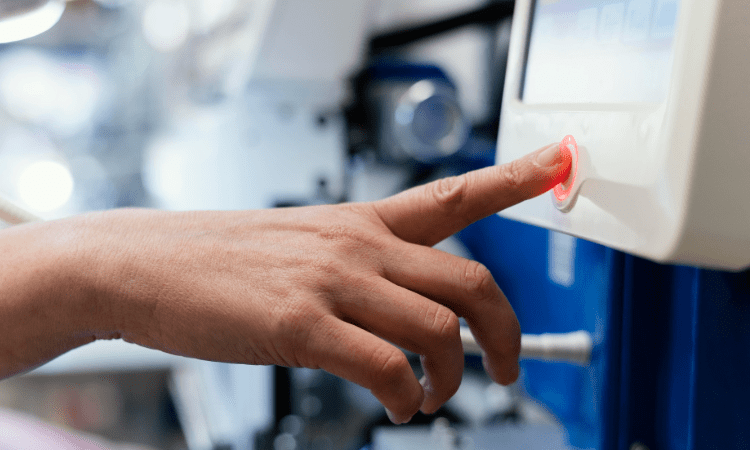Semi-Quantitative Elemental Determination: Benefits of XRF Analysis
Details About XRF Analysis...

What is Semi-Quantitative Elemental Determination?
Semi-quantitative elemental determination is the process of identifying and measuring approximate amounts of elements in a material. This method usually presents the concentrations of elements in a sample as ratios or estimated amounts rather than exact values. This type of analysis is used to obtain a rapid overall elemental profile and is particularly preferred in applications such as initial screening, quality control and process monitoring.
What is the XRF (X-Ray Fluorescence) Method?
XRF is a non-contact analysis method that uses X-rays to analyze the atomic structure of elements in a sample.
How Does It Work?
- When X-rays hit a sample, the atoms in the sample emit fluorescence (secondary X-rays).
- This emission reveals a “fingerprint” like spectrum where each element has a unique energy level.
- This spectrum provides qualitative (which elements are present) and semi-quantitative (approximately how much of the elements are present) analysis of the elements in the sample.
Benefits of XRF Analysis
- Fast and Efficient Analysis: XRF determines the elemental composition of a sample in a very short time (usually within seconds or minutes). This is particularly advantageous for industries that require process monitoring and fast decision-making.
- Non-Contact and Non-Destructive Measurement: The XRF method does not damage the sample. This makes it possible to analyze valuable, rare or unique samples.
- Wide Element Range: With XRF, most of the elements in the periodic table can be analyzed. It is especially ideal for elements between sodium (Na) and uranium (U).
- Application in Various Materials: It can analyze many different types of samples, including solids, liquids, powders and coatings.
- Low Cost Operation: Although many samples can be analyzed, it is a low-cost method. Calibration requirements are minimal and consumables consumption is low.
- Environmental Safety: No chemical reagents are required, reducing environmental risks and providing a safer working environment.
- Mobile and Portable Solutions: Portable XRF instruments make it easier to analyze in the field. This is especially critical for applications such as mineral exploration, scrap metal separation and environmental monitoring.
Nanolab Laboratories Group, you can contact us for your questions about Semi-Quantitative Elemental Determination. We also provide services on Heavy Metal Analysis in Foods.
Contact us for more information.
You can follow us on LinkedIn for up-to-date news and posts about our services.
Follow our Instagram account to be informed about our latest blog posts.

